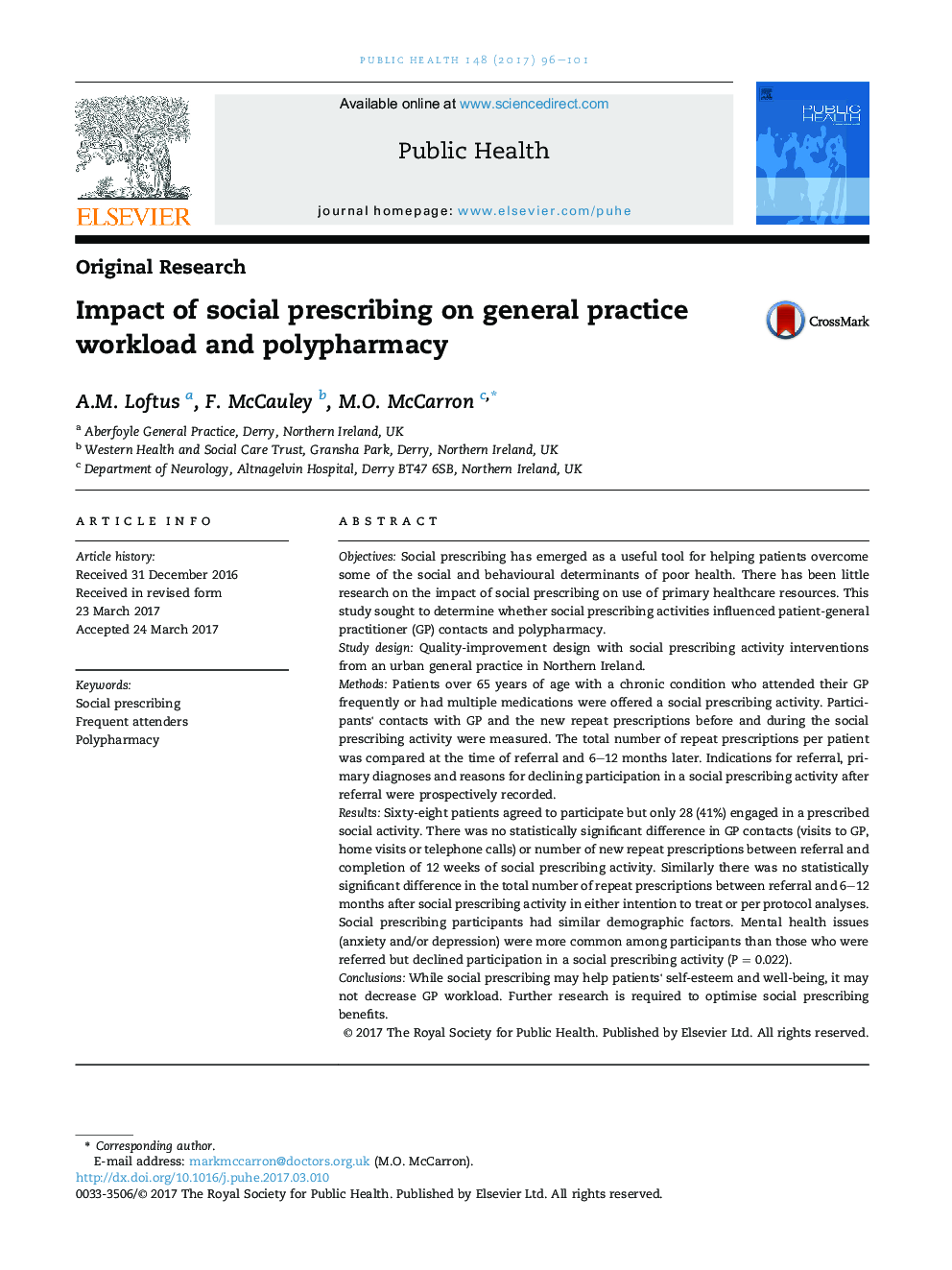| Article ID | Journal | Published Year | Pages | File Type |
|---|---|---|---|---|
| 5122889 | Public Health | 2017 | 6 Pages |
â¢Social prescribing has helped patients with chronic mental and physical health-related disorders.â¢This study suggests that social prescribing activities have little impact on releasing GP healthcare capacity or decreasing polypharmacy in patients aged over 65 years.â¢Future research should determine what social prescribing strategies or factors benefit GP healthcare resources.
ObjectivesSocial prescribing has emerged as a useful tool for helping patients overcome some of the social and behavioural determinants of poor health. There has been little research on the impact of social prescribing on use of primary healthcare resources. This study sought to determine whether social prescribing activities influenced patient-general practitioner (GP) contacts and polypharmacy.Study designQuality-improvement design with social prescribing activity interventions from an urban general practice in Northern Ireland.MethodsPatients over 65 years of age with a chronic condition who attended their GP frequently or had multiple medications were offered a social prescribing activity. Participants' contacts with GP and the new repeat prescriptions before and during the social prescribing activity were measured. The total number of repeat prescriptions per patient was compared at the time of referral and 6-12 months later. Indications for referral, primary diagnoses and reasons for declining participation in a social prescribing activity after referral were prospectively recorded.ResultsSixty-eight patients agreed to participate but only 28 (41%) engaged in a prescribed social activity. There was no statistically significant difference in GP contacts (visits to GP, home visits or telephone calls) or number of new repeat prescriptions between referral and completion of 12 weeks of social prescribing activity. Similarly there was no statistically significant difference in the total number of repeat prescriptions between referral and 6-12 months after social prescribing activity in either intention to treat or per protocol analyses. Social prescribing participants had similar demographic factors. Mental health issues (anxiety and/or depression) were more common among participants than those who were referred but declined participation in a social prescribing activity (PÂ =Â 0.022).ConclusionsWhile social prescribing may help patients' self-esteem and well-being, it may not decrease GP workload. Further research is required to optimise social prescribing benefits.
